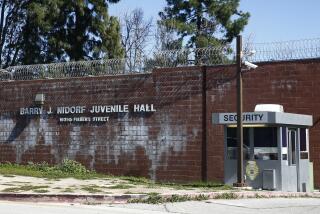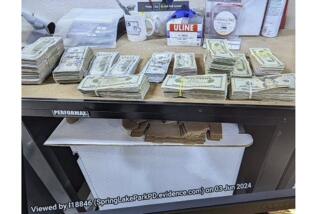U.S. Audits Find Money for Iraq Frittered Away
DUBAI, United Arab Emirates — U.S. government audits found American-led occupation authorities squandered tens of millions of dollars that were supposed to have been used to rebuild Iraq.
The findings attribute the losses to undocumented spending and fraud, and include the failure to account for $97 million of the $120 million in Iraqi oil revenue earmarked for rebuilding projects in southern Iraq.
In addition, auditors found that a U.S. soldier spent $60,000 on a gambling trip to the Philippines and contractors repaired a hospital elevator so poorly that it crashed and killed three people.
In some cases, auditors recommend criminal charges be filed against the perpetrators. In others, the U.S. envoy to Iraq is asked to recoup the money.
The audit reports describe the Coalition Provisional Authority’s offices in the south-central city of Hillah being filled with bricks of $100 bills taken from a central vault without documentation.
“Those deficiencies were so significant that we were precluded from accomplishing our stated objectives,” the auditors said.
Audits have yet to be released for spending in the rest of Iraq by the occupation authority, which governed until mid-2004.
Auditors have asked the U.S. ambassador to recover a total of $571,823 that the reports describe as overpaid funds.
In some cases, cash simply disappeared.
Two occupation authority field agents responsible for paying contractors left Iraq without accounting for more than $700,000 each, audits found. When auditors confronted their manager and asked where the money was, the manger attempted to clear one of the agents through false paperwork.
“This appears to be an attempt to remove outstanding balances by simply washing accounts,” the auditor said. The two agents were not identified, and there was no word on whether the pair were referred for prosecution.
One report describes mismanagement of more than 2,000 small contracts in south-central Iraq worth $88 million. Occupation staffers or those they supervised handed out millions to firms that never submitted required competitive bids or that were paid for unfinished work.
More to Read
Sign up for Essential California
The most important California stories and recommendations in your inbox every morning.
You may occasionally receive promotional content from the Los Angeles Times.










